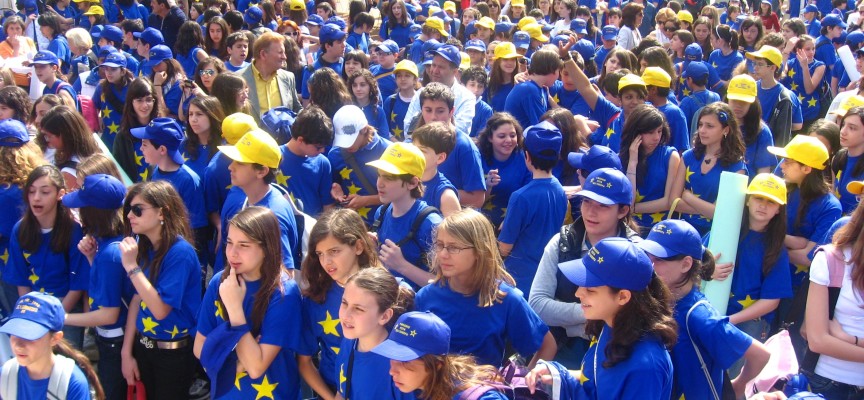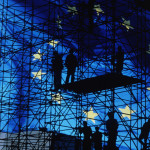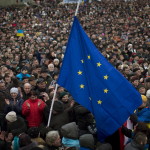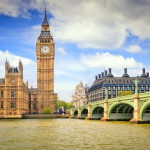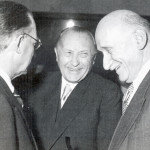Nevertheless, “the essentials of European structure is there – we can see it in every act, we perceive it in every word, we feel it with a new, painful intensity within ourselves. This is why we are confident that it shall continue and it will go down into history”. This reflection, although it sounds as if it had been elaborated today, was written in 1946 by Romano Guardini, a European thinker who really thought something about Europe. In our time of crisis, we do need such an injection of hope.
Since long in Europe there has been a huge amount of prophets of doom but we have been lacking prophets who announce better times. We ought to admit it. We constantly have recourse to our “Fathers” to bring in again ideas, projects, enthusiasm. A necessary return, because memory is an inestimable value but not a value to be guarded in a drawer and taken out only on the occasion of anniversaries and celebrations. One could even die out of an excess of stored memory.
What is missing today is a “European prophecy,” a long-sighted vision which can help culture and politics to look up higher and further away. It is as if someone had stolen the soul of Europe, but – as a matter of fact – Europe itself is convinced that it is better to live without any soul. Bureaucracy, business and all forms of selfishness have reinforced this conviction. Thus the spirit of Europe has helplessly weakened and was eventually marginalized into the category of useless items.
There was more surrender than resistance, also by Christians, in front of this planned approach. Then, why should we still be upset about it? Such a complaining attitude does not help to build the future, nor does it acknowledge the long-sightedness of the “Fathers,” and even less it encourages our young people to spend their energy so that Europe may recognize itself in a single common house and not in a block of individually owned flats.
Young people love Europe. You easily realize it when you listen to them telling us about Erasmus or their journeys to other European countries. You come across a beautiful and transparent sentiment, but this sentiment should grow into a political thought, a political project, and a political commitment.
It is no easy transition because – as Guardini wrote – we know well “how strong is the resistance to an event such as the formation of a sincere European spirit, and how much resistance there will still be in the future”.
This is why it is so important to create places and propose moments in which the new European generations can meet to update a “dream”, to elaborate a new thought, to come into play, and to give a high meaning to their life – a meaning which is deeply rooted into their fields of origin and in the conviviality of different fields, which corresponds to the vocation of Europe.
Such a “European prophecy”, inside and outside the borders of the Continent, must necessarily have the faces of young people, as well as their vision, their creativity, and their skills.
And, at their side, we shall need someone who, along with Romano Guardini, maintains: “If Europe is still to exist in the future, if the world will still need Europe, the latter shall remain the same historical entity which was determined by the figure of Christ”.
Nonostante tutto “la struttura essenziale europea c’è: la vediamo anzi in ogni gesto, la percepiamo in ogni parola, la sentiamo con intensità nuova, dolorosa in noi stessi. Così siamo fiduciosi che continuerà e sarà soggetto di storia”. Il pensiero, che sembra scritto in questi giorni, risale al 1946 ed è di Romano Guardini, un pensatore europeo e un pensatore dell’Europa. In un tempo di crisi queste iniezioni di speranza ci mancano.
Da tempo in Europa c’è un’abbondanza di profeti di sventura e una carenza di profeti che annunciano un tempo migliore. Bisogna ammetterlo. Si ricorre continuamente ai “Padri” per rilanciare idee, progetti, entusiasmi. Un ritorno doveroso perché la memoria è un valore inestimabile ma non è un valore da conservare in un cassetto e da tirar fuori in occasione di ricorrenze e celebrazioni. Di eccesso di una memoria archiviata si può anche morire.
Oggi manca “una profezia europea”, manca una grande visione che aiuti la cultura e la politica a guardare più in alto e più lontano. Sembra che qualcuno abbia rubato l’anima all’Europa mentre è la stessa Europa a essere persuasa che è meglio vivere senz’anima. La burocrazia, gli affari, gli egoismi hanno contribuito a rafforzare questa convinzione. E così si è inesorabilmente indebolito lo spirito dell’Europa confinandolo nella categoria dell’inutile.
C’è stata più resa che resistenza, anche da parte dei cristiani, di fronte a questo disegno. Ma a che serve amareggiarsi ancora? Con la lamentazione non si costruisce il futuro, non si rende onore alla lungimiranza dei “padri” e neppure s’incoraggiano i giovani a spendersi perché l’Europa si riconosca nella casa e non nel condominio.
I giovani amano l’Europa. Per rendersene conto basterebbe ascoltarli quando raccontano dell’Erasmus e dei viaggi nei Paesi europei. Ci s’imbatte in un sentimento bello e trasparente ma che, almeno in parte, deve crescere fino a diventare pensiero politico, progetto politico, impegno politico.
Non è un passaggio facile perché, scriveva Guardini, sappiamo “quanto forti siano le resistenze contro un avvenimento quale la formazione di un sincero sentimento europeo e quante ancora saranno”.
Ecco l’importanza di creare luoghi e di proporre momenti in cui le nuove generazioni europee possano incontrarsi per aggiornare un “sogno”, per elaborare un pensiero nuovo, per mettersi in gioco, per dare un significato alto alla propria vita, un significato che ha radici nel territorio di origine e nella convivialità di territori diversi quale è chiamata a essere l’Europa.
La “profezia europea”, dentro e fuori i confini di un continente, non può non avere i volti dei giovani, non può non avere il loro sguardo, non può non avere la loro creatività, non può non avere la loro competenza.
Accanto a loro ci vorrà qualcuno che, con Romano Guardini, dica: “Se l’Europa deve esistere ancora in avvenire, se il mondo deve ancora aver bisogno dell’Europa, essa dovrà rimanere quella entità storica determinata dalla figura di Cristo”.
Paolo Bustaffa
Latest posts by Paolo Bustaffa (see all)
- Europe in Aldo Moro’s project - 31 dicembre 2016
- Ventotene: a cultural alliance between generations is urgent for the EU - 3 settembre 2016
- That flag in the Wyd - 7 agosto 2016

